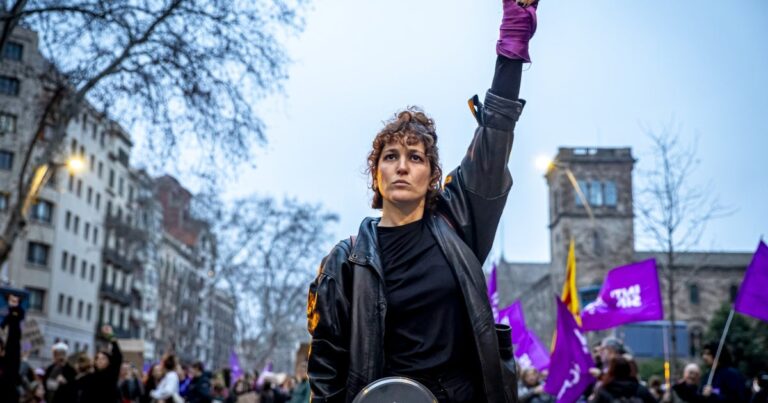Click to expand Image Thousands of people take to the streets of Barcelona, Spain, in a massive demonstration for International Women’s Day, March 8, 2025. The French government’s description of the event laments that progress toward gender equality “is not being made fast enough.” That is an epic understatement. We are deep in a global backlash against women and girls’ rights. Reproductive rights are under attackaround the world. At the United Nations and other international bodies, anti-feminist governments, increasingly led by the United States, are working to undermine women’s rights, and space to be heard is closing. In Afghanistan, Taliban oppression is driving demands to create an international crime of gender apartheid. We see discussions about whether women should be allowed to vote. Misogyny is a favorite tool of authoritarians. Too many actors are ceding the field to them. The United States and European countries, including France, have slashed aid, harming the work of many women’s rights groups in countries around the worldFeminist foreign policy was a term coined in Sweden in 2014. Although Sweden later stepped back, by 2024, a dozen more countries from Europe, Latin America, and North Africa had pledged to implement a feminist foreign policy. France published its strategy in March. The countries that come together in Paris should play a lead role in blocking the erosion of women’s rights, taking an intersectional approach centering the voices of marginalized women, including those with disabilities and on the frontlines of the climate crisis. They should recognize that language is worth fighting for, in UN Security Council resolutions and elsewhere. “Workarounds,” such as avoiding the use of “gender” in resolutions, undermine gains. But as France also pointed out, at the current pace, the UN predicts we will achieve gender equality in 300 years. Countries implementing a feminist foreign policy should both fight against backsliding and continue insisting on progress. They should push for all countries to fund protection against sexual and gender-based violence and ensure access to health, education, and housing. They should insist on women’s rights defenders being heard in Security Council debates, channel support to female peacekeepers, and push for women’s equal participation in peace negotiations, treaty drafting, and other international forums. They should move forward with a planned International Court of Justice case on violations of the women’s rights convention and create an international crime of gender apartheid through a UN crimes against humanity treaty. We hope the Paris meeting will produce a sense of urgency, unity, determination, and willingness to fight.
New










